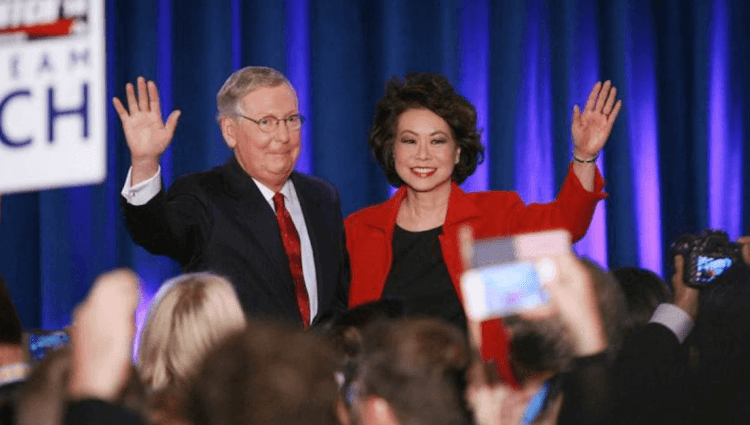President-elect Donald Trump’s pick for U.S. Secretary of Transportation is likely a boon for ride-hailing companies like Uber and Lyft.
On Tuesday, Trump announced that he’s selected Elaine Chao to lead the Department of Transportation during his presidency. Chao, who is married to U.S. Senator and Majority leader Mitch McConnell (R-KY), was previously the Secretary of Labor under George W. Bush, and Deputy Secretary of Transportation under President George H. W. Bush.
While not much is known about her stance on self-driving cars—an important area for pretty much every transportation or auto company today—she seems quite friendly to the so-called “sharing economy.” Chao expressed support for the idea that an increasing number of Americans will take part in the “gig economy” and work part-time for more than one employer when she spoke at an American Action Forum event a year ago. (Hat tip to former Fortune editor Dan Primack for spotting this.)
What’s more, Chao repeated the same claim that ride-hailing and home-sharing companies turn to pushing for less regulations: That these services are simply an additional source of income for drivers and homeowners. At the event, Chao said:
Take the ride sharing company Uber, which published an analysis of a representative sample of its workforce of more than 160,000 drivers in 2015. Nearly half of the Uber drivers surveyed had a college degree or higher. 62% had another full-time or part-time job. Nearly half had health insurance coverage through another job, spouse or family member. More than two-thirds reported having financial dependents at home. So it’s no surprise drivers cited the flexibility to set their own schedule as one of the principle reasons for partnering with Uber. Another frequently cited reason was the need to supplement fluctuating income from other sources.
Both Uber and Lyft have been sued for their classification of drivers as independent contractors instead of employees, which frees them from providing drivers with benefits like health insurance and reimbursing them for work expenses. And both repeatedly argue that most of their drivers are part-time, and that making them employees would strip them of their flexibility.
Chao painted a similar picture about home-sharing company Airbnb, as well as marketplaces like Etsy and eBay, and argued for the need for a new approach to employment.
“We need to preserve the protections of the past for those who need them, while crafting new solutions that better fit the preferences of workers in the sharing economy,” she said. “At a minimum, government policies must not stifle the innovation that has made this sector such an explosive driver of job growth and opportunity.”
During her tenure as Secretary of Labor, Chao moved to slimmed down certain regulations, while also pushing for unions to provide more financial transparency to their members.
Still, it remains to be seen how her department’s policies will play out regarding self-driving cars, which, according to ride-hailing companies are not only inevitable, but also coming faster than we expect. Lyft co-founder and president John Zimmer, for example, recently boldly predicted that by 2025, all Lyft rides in major cities will be performed with self-driving cars.
So far, Uber and Lyft seem optimistic.”Ms. Chao’s knowledge of transportation issues is extensive and we look forward to working closely with her,” Uber head of federal affairs Niki Christoff said in a statement sent to Fortune.
“We have the utmost respect for Elaine Chao, an accomplished public servant and highly capable leader,” a Lyft spokesman also told Fortune in a statement. “We congratulate her on the nomination and look forward to working with her on an array of transportation issues.”
This story originally appeared on Fortune.com. Copyright 2016
VentureBeat's mission is to be a digital town square for technical decision-makers to gain knowledge about transformative enterprise technology and transact. Learn More

